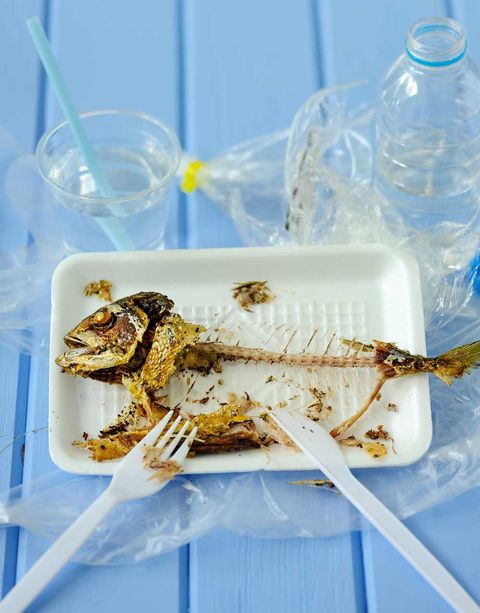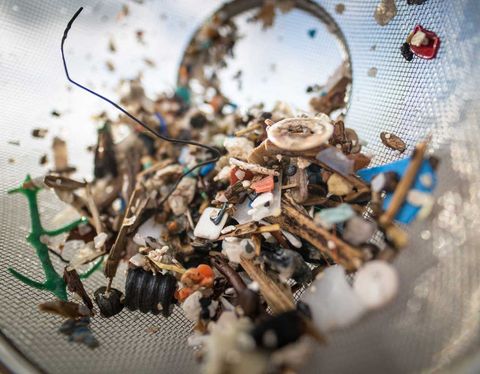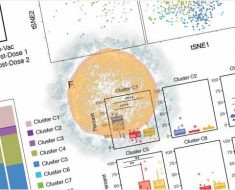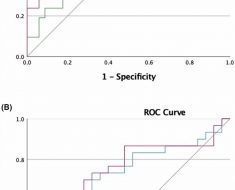
Uh oh: Plastic-polluted waters are contaminating the worldwide seafood supply.
But, fish, you’ve been told repeatedly, is one of the healthiest proteins you can eat. Many species, including salmon and albacore tuna, are a good source of those all-important omega-3 fatty acids, especially EPA and DHA, which have been linked to heart and brain health.
But just like proteins found on land, fish are only as healthy as their diet—and that diet increasingly contains what are known as microplastics, which measure 5 millimeters or less in diameter.
These tiny pieces mainly come from larger plastic items that have been broken down by wind, waves, and sunlight, explains Erica Cirino, a guest researcher studying plastic pollution at Roskilde University in Denmark. Some microplastics also come in the form of raw plastic pellets called “nurdles” (great word, right?) and microbeads found in health and beauty products.

Last year, the United Nations issued a statement that the world’s oceans alone contain more microplastics than the Milky Way does stars—500 times more. Researchers have found the particles in freshwater, too.
So what does this mean for you?
Well you don’t have to worry about choking on plastic when you order the cod, because fish will pass microplastics. But their flesh might still absorb chemicals, such as potentially toxic PCBs and heavy metals, from those pieces.
The bottom line: Don’t give up seafood. More research is needed to determine how eating microplastic-tainted fish affects human health, and in the meantime, the benefits outweigh potential risks. (Also, microplastics may come from sources other than seafood, as a recent analysis of human stool found them in eight participants, and only six had eaten sea fish.)
You can minimize those risks further by eating smaller fish. “Plastic and toxins can both travel up the food chain,” says Cirino. “So eating animals who consume mostly plants or algae is a safer bet than eating predatory marine life.”
Think herring and sardines, not tuna and halibut. Filter feeders like clams and mussels are also affected but seem especially efficient at ridding themselves of microplastics.
Nurdles!
Source: Read Full Article





